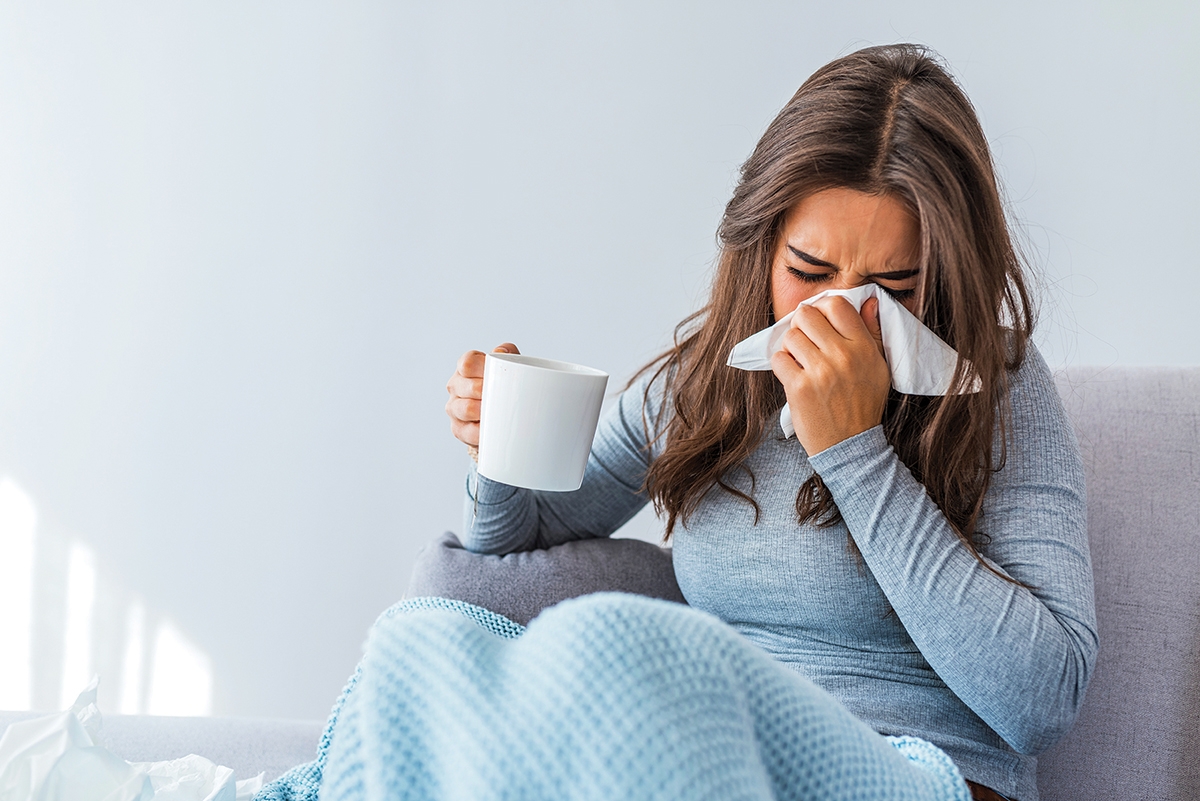Home Remedies For Cold And Flu Symptoms

Cold and flu season is upon us, and each year, millions of children and adults in the U.S. fall ill this time of year. While it’s important to seek medical attention for severe or protracted symptoms, there are also several things you can do at home to alleviate symptoms, prevent the illness from worsening, and even help the infection resolve faster. Here are some simple suggestions that can help you and your family feel better this cold and flu season.
1. Take an over-the-counter fever reducer. Acetaminophen (Tylenol) and Ibuprofen (Motrin or Advil) are effective in treating headaches and body aches that patients often experience from colds and the flu. In addition, these medicines also help to reduce fever, which is important because the higher your temperature is, the faster water evaporates from your skin surface, leading to dehydration. Please remember that pregnant women, patients with underlying medical conditions, patients with certain medication allergies, and caretakers of infants should consult a healthcare professional to make sure they’re giving the correct medication in the correct dose.
2. Drink plenty of fluids. Since viruses can cause vomiting, diarrhea, fever, and excessive mucus production, all of which can lead to significant fluid losses, it’s important to replenish these losses by staying hydrated while you’re sick. Especially if you’re experiencing vomiting or diarrhea, drinking slow sips of electrolyte-rich fluid (such as Pedialyte or Gatorade) can not only prevent dehydration, but can also help to replace the electrolytes you’ve lost. It’s important to note that if you go more than eight hours without urinating, or if you have a headache, dizziness, weakness, incessant vomiting, or dark urine, you should seek immediate medical attention, since these symptoms can indicate severe dehydration.
3. Get lots of rest. Your body’s immune system needs plenty of sleep in order to function properly. People who are sleep-deprived are more likely to become ill when they’re exposed to viruses such as influenza or the common cold. And, if they do get sick, their symptoms are more likely to last longer than if they were well-rested. This cold and flu season, make sure you get at least seven hours of sleep each night. And if you do get a cold or the flu, rest as much as possible throughout the day to help your body recover faster.
4. Use grocery store ingredients to treat your cough. Believe it or not, common grocery store items can help alleviate a cough just as well (if not better!) than pharmaceutical cough suppressants. Honey has been shown to be as effective as over-the-counter cough suppressants. One of the reasons it works is because of its viscosity, so we recommend eating it straight off the spoon instead of adding it to your tea in order to get the maximum benefit. (Just remember that honey is not recommended for children under one year of age.) Chocolate is another tasty grocery store ingredient that’s an effective cough suppressant. Cocoa contains theobromine, a compound that suppresses coughs more effectively than codeine, a mild narcotic that’s often in prescription-strength cough suppressants. Menthol lozenges are another effective cough treatment, since menthol is a mild anesthetic that numbs your cough reflex.
5. Eat chicken noodle soup. Recent scientific studies have proven what our moms and grandmas have known for years: chicken noodle soup is effective in relieving symptoms from the common cold! Patients who eat chicken noodle soup while they’re under the weather typically have less severe cold symptoms, and sometimes even a shorter duration of infection. Chicken noodle soup works for several reasons. First, the steam from the broth alleviates congestion in your sinuses and chest. Second, the soup contains well-balanced nutrition, including carbohydrates, vegetables, hydration, and protein. And third, chicken contains cysteine, an amino acid that helps break down mucus quickly.

